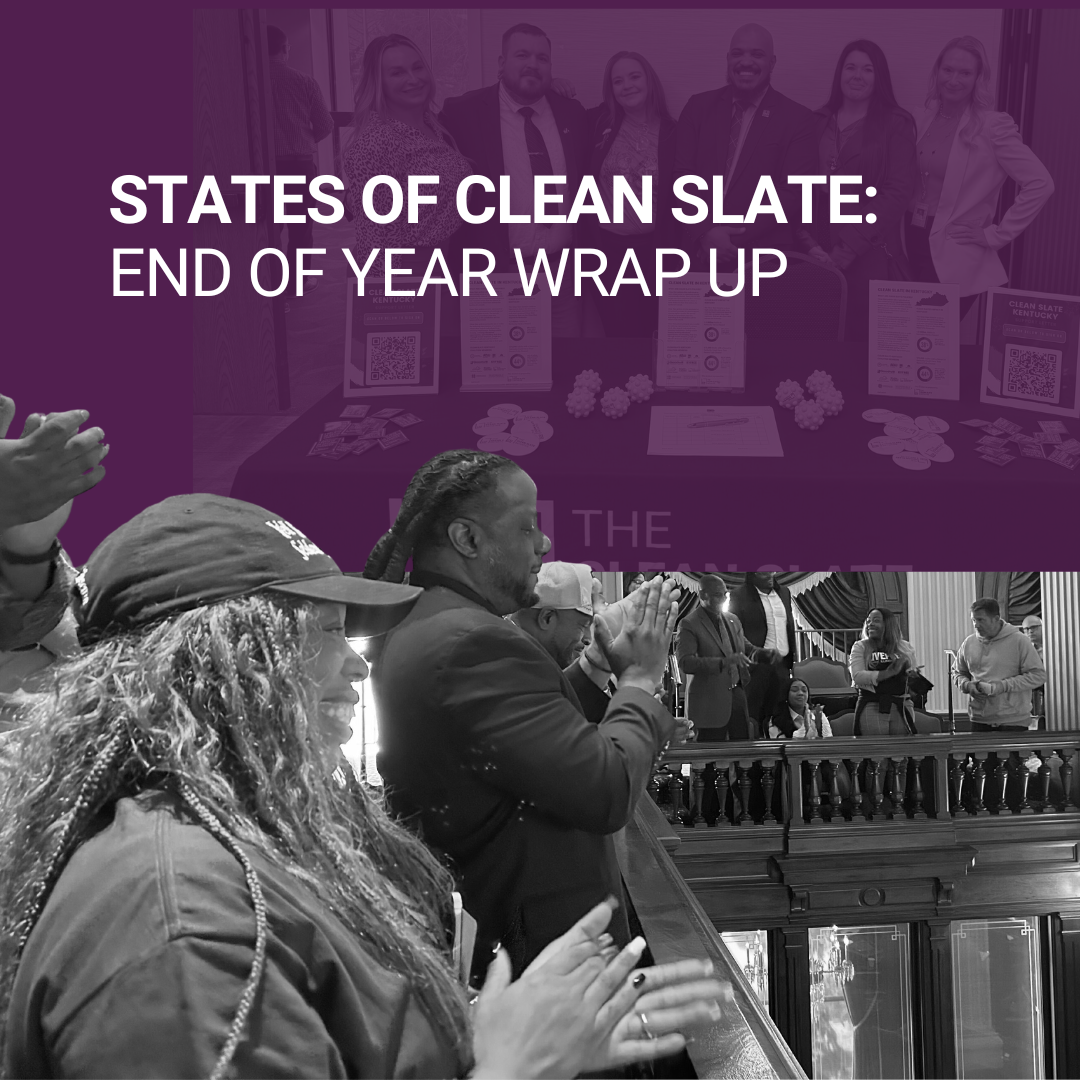Watch: Second Chances Make Our Communities Safer

In April 2022, The Clean Slate Initiative and the Center for American Progress convened a panel of criminal justice policy experts to discuss how automatic record clearance laws improve community safety by increasing employment and opportunities that reduce recidivism and crime.
Sheena Meade, CEO of The Clean Slate Initiative, moderated the discussion.
Participants included:
- Nicole Lee Ndumele, Senior Vice President of Rights and Justice, Center for American Progress (Introductory remarks)
- Akua Amaning, Director for Criminal Justice Reform, Center for American Progress
- Diane Goldstein, Executive Director, Law Enforcement Action Partnership
- Tony McCright Jr., Senior Program Specialist for Justice Initiatives, National League of Cities
- Jillian Snider, Policy Director for Criminal Justice and Civil Liberties, R Street Institute
While most people agree that a past arrest or conviction record should not be a life sentence to poverty and hopelessness, 1 in 3 people in America today has some kind of record that is a barrier to jobs, housing, and/or other avenues to economic mobility. Fortunately, clean-slate automatic record clearance laws provide a second chance for people with eligible past records to get a job, further their education, support their families, and rebuild their lives. But second chances don’t just benefit people with records; they make life better for all of us.
Five (5) states have enacted Clean Slate laws in recent years - (Pennsylvania, Utah, Michigan, Connecticut, and Delaware), and many other states are moving towards passage.
Most states have some process for people to pursue record expungement. However, those processes are often expensive, complicated, and difficult to navigate. Clean Slate laws offer a technological solution that automatically provides people the relief to which they are entitled. Further, the automated process eliminates unnecessary bureaucratic processes, thus freeing up government resources and taxpayer dollars to be spent elsewhere.
.avif)

.png)
